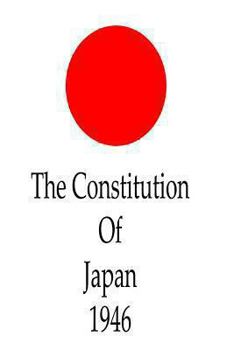The Constitution Of Japan, 1946
The Constitution of Japan is the fundamental law of Japan. It was enacted on 3 May 1947 as a new constitution for postwar Japan. The constitution provides for a parliamentary system of government and guarantees certain fundamental rights. Under its terms the Emperor of Japan is "the symbol of the State and of the unity of the people" and exercises a purely ceremonial role without the possession of sovereignty. The constitution, also known as the "Postwar...
Format:Paperback
Language:English
ISBN:1477444289
ISBN13:9781477444283
Release Date:May 2012
Publisher:Createspace Independent Publishing Platform
Length:32 Pages
Weight:0.13 lbs.
Dimensions:0.1" x 6.0" x 9.0"
Customer Reviews
0 rating





